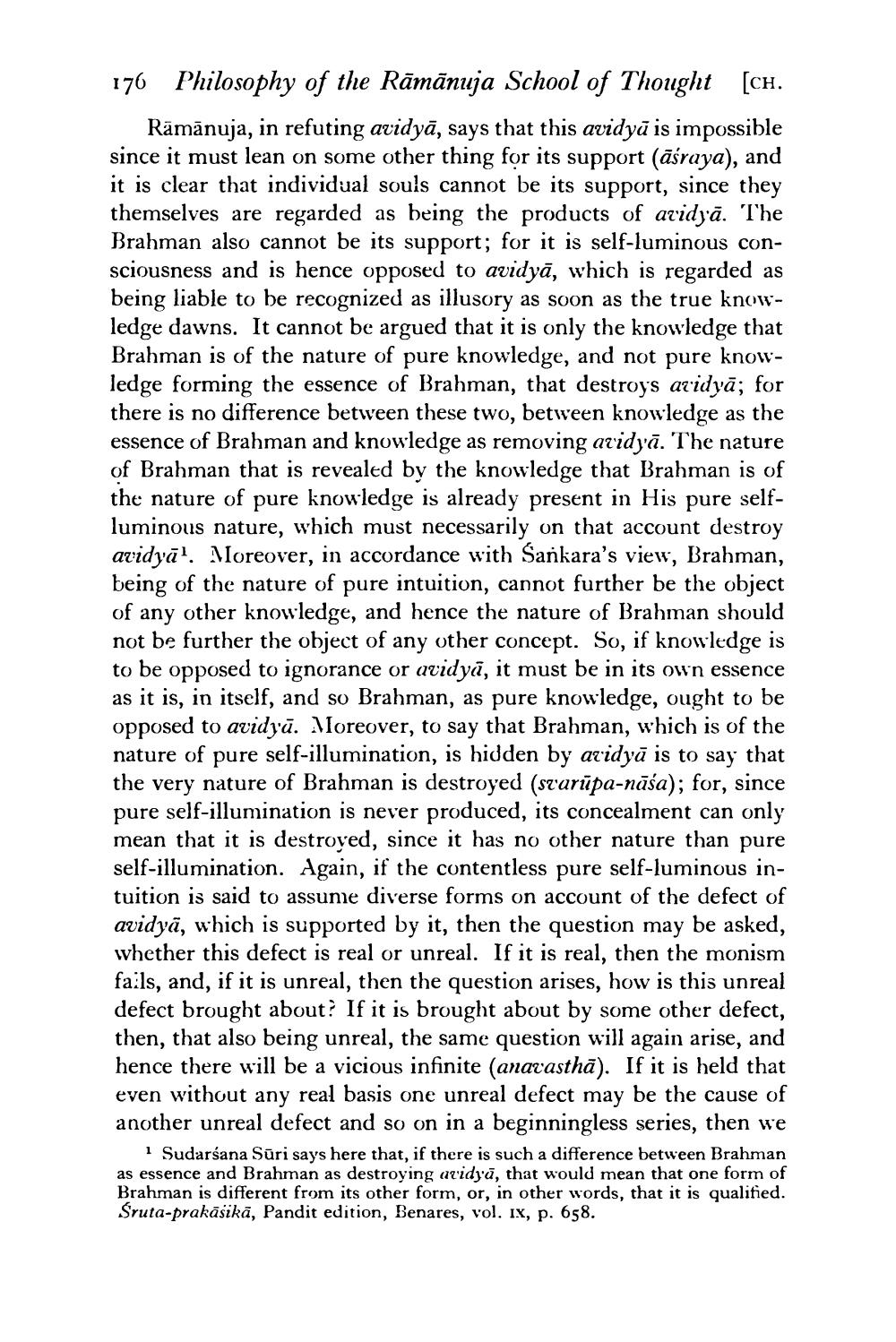________________
176 Philosophy of the Rāmānuja School of Thought [ch.
Rāmānuja, in refuting avidyā, says that this avidyā is impossible since it must lean on some other thing for its support (āšraya), and it is clear that individual souls cannot be its support, since they themselves are regarded as being the products of avidyā. The Brahman also cannot be its support; for it is self-luminous consciousness and is hence opposed to avidyā, which is regarded as being liable to be recognized as illusory as soon as the true knowledge dawns. It cannot be argued that it is only the knowledge that Brahman is of the nature of pure knowledge, and not pure knowledge forming the essence of Brahman, that destroys aridyā; for there is no difference between these two, between knowledge as the essence of Brahman and knowledge as removing avidyā. The nature of Brahman that is revealed by the knowledge that Brahman is of the nature of pure knowledge is already present in His pure selfluminous nature, which must necessarily on that account destroy avidyā!. Moreover, in accordance with Sankara's view, Brahman, being of the nature of pure intuition, cannot further be the object of any other knowledge, and hence the nature of Brahman should not be further the object of any other concept. So, if knowledge is to be opposed to ignorance or avidyā, it must be in its own essence as it is, in itself, and so Brahman, as pure knowledge, ought to be opposed to avidyā. Moreover, to say that Brahman, which is of the nature of pure self-illumination, is hidden by avidyā is to say that the very nature of Brahman is destroyed (starūpa-nāša); for, since pure self-illumination is never produced, its concealment can only mean that it is destroyed, since it has no other nature than pure self-illumination. Again, if the contentless pure self-luminous intuition is said to assume diverse forms on account of the defect of avidyā, which is supported by it, then the question may be asked, whether this defect is real or unreal. If it is real, then the monism fails, and, if it is unreal, then the question arises, how is this unreal defect brought about? If it is brought about by some other defect, then, that also being unreal, the same question will again arise, and hence there will be a vicious infinite (anavasthā). If it is held that even without any real basis one unreal defect may be the cause of another unreal defect and so on in a beginningless series, then we
Sudarśana Sūri says here that, if there is such a difference between Brahman as essence and Brahman as destroying avidyā, that would mean that one form of Brahman is different from its other form, or, in other words, that it is qualified. Sruta-prakāsikā, Pandit edition, Benares, vol. ix, p. 658.




